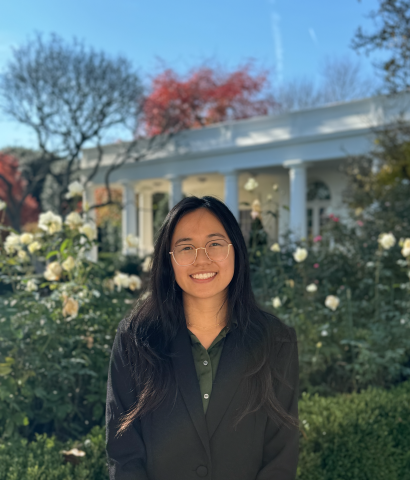February is National Heart Month, and one ARCS Scholar is researching a heart condition to develop a novel therapy to mitigate the risks.
Emily Cheung is a Ph.D. student in biomedical engineering at George Washington University, supported by the ARCS Metro Washington chapter. She grew up fascinated with science and knew that was where her future path would lead her.
“I remember doing science projects where I would grow sugar crystals or extract DNA from fruits and vegetables,” Cheung says. “When I was six, my younger brother had heart surgery, and I was very curious about it. I started researching it and learning more throughout high school.”
After graduating from high school, Cheung attended George Washington University, where she gained hands-on experience with heart research.
“I had the fantastic opportunity to work in a cardiac research lab with rodent models,” Cheung says. “That got me more excited about learning about the heart and testing novel drugs. My passion evolved into improving patient lives using cardiac research.”
Her current research intersects cardiac electrophysiology and neuroscience. Cheung is investigating a disease known as heart failure with preserved ejection fraction (HFpEF), which occurs when a person experiences symptoms of heart failure despite the heart being able to pump blood normally. In this disease, the heart has difficulty filling properly due to stiff ventricle walls.
“I am studying how activating oxytocin neurons can be used to treat this disease,” Cheung says. “Increasing oxytocin production increases parasympathetic activity that can combat the progression of heart failure.”
Cheung and her team are working with female rats in the laboratory to test this hypothesis.
“We do in vivo testing to understand how the animal is functioning and optical mapping to understand the calcium handling and voltage signaling of the heart,” Cheung says. “I think it’s super interesting that we get to combine these two techniques to fully understand how our drug is affecting the heart.”
ARCS funding has allowed her to present her research and meet the people who make ARCS funding possible.
“I presented my research at the National Academy of Sciences in Washington, D.C.,” Cheung says. “It was a privilege to take my research out of the lab and inspiring to meet the people that were investing in me.”
Her future plans include working in the drug development industry and policy.
“I had an internship where I worked in policy at the White House, and I got a new perspective about how legislation can affect health care,” Cheung says. “I’d love to find a role in policy that can help with expanding access to treat more patients.”

